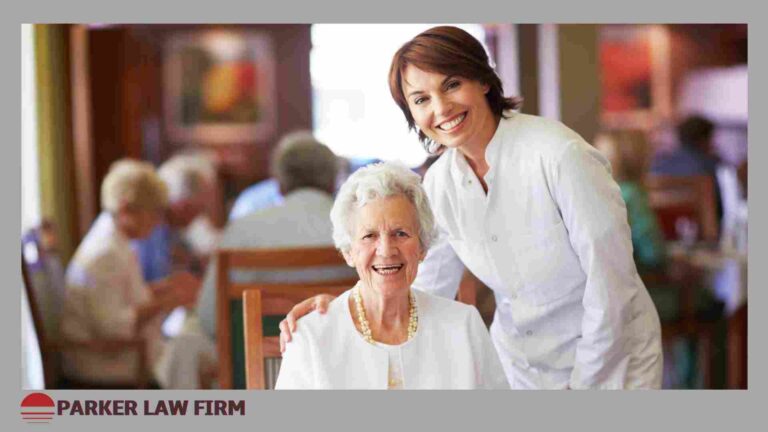

In New York, guardianship is a serious legal measure that is only used when an individual is deemed incapable of managing their own personal or financial affairs. Guardianship, specifically under Article 81 of New York law, is typically initiated to protect vulnerable individuals who can no longer care for themselves due to age, illness, or disability. For those seeking guidance through the guardianship process, consulting a Yonkers elder lawyer is an essential step.
Guardianship represents a significant limitation on personal freedom, so courts take extra care to ensure it's necessary. As highlighted in a recent article by the Pauls Valley Democrat, courts must have concrete evidence to support a person’s incapacity.
In New York, a person is considered incapacitated if they:
As the The Pauls Valley Democrat’s article “Guardianship – What is sufficient incapacity?” explains, courts must be certain that an individual is truly “incapacitated” to determine guardianship of Yonkers incapacitated adults.
At the beginning of the legal process, the individual is referred to as the "alleged incapacitated person" (AIP) because incapacity has not yet been proven. The court must evaluate the situation thoroughly, usually based on medical, psychological, or administrative testimony, before determining whether guardianship is appropriate.
While guardianship can provide necessary protection for incapacitated individuals, there are less restrictive alternatives that allow more autonomy while still ensuring support. Limited guardianships focus on specific areas, such as finances or healthcare, and require court approval with demonstrated incapacity. Powers of attorney—whether for financial or medical decisions—allow trusted individuals to manage affairs on the incapacitated person’s behalf, with the flexibility to be revoked when no longer needed. Assisted decision-making involves oversight of financial transactions, reducing the risk of exploitation while maintaining the person’s primary control. Wills and trusts can also provide a safeguard, appointing trustees or co-trustees to manage assets when necessary, avoiding the need for full guardianship altogether.
The guardianship process begins when a petitioner, often a family member or agency, files a case in court to request a guardian for the AIP. The petitioner must provide solid evidence that a guardian is necessary to protect the person in question. A person who is requesting to be appointed guardian by the court must show evidence to prove the person’s incapacity. This evidence is typically presented with the professional opinion of medical, psychological, or administrative bodies. If the court agrees, the appointed guardian will have specific responsibilities outlined by the judge.
For those living in Westchester County, including Yonkers, an experienced elder lawyer can help petitioners navigate the legal requirements and represent the interests of the incapacitated person in court.
New York’s Article 81 guardianship system is tailored to the specific needs of incapacitated individuals. A judge may appoint a guardian to oversee the AIP’s personal needs, property management, or both, depending on the level of incapacity.
A guardian for personal needs may be responsible for making crucial decisions, such as:
Alternatively, a guardian may be appointed to handle the financial affairs of an incapacitated person. Responsibilities may include:
Before appointing a guardian, the court holds a hearing to review the evidence and hear testimony from medical professionals and other relevant parties. In these cases, the type of professional chosen to provide an opinion should match the needs of the person (the “ward”), who will be subject to guardianship. This is to ensure that guardianship is necessary and in the best interest of the AIP. The court will receive this evidence and if it’s acceptable, in many cases, require that the experts provide a plan for the care and administration of the ward and his assets. This plan will become a control measure, as well as guidance for the guardian who’s appointed.
Once a guardian is appointed, they must complete training and adhere to strict guidelines set by the court. Additionally, guardians are subject to ongoing oversight to ensure they are fulfilling their duties responsibly, including providing regular reports on their management of the person’s needs and assets. These controls will include regular monitoring and reports of performance back to the court.
Establishing guardianship is a complex legal process that requires careful consideration of an individual’s needs and rights. In New York, courts are diligent in ensuring that guardianship is only used when absolutely necessary, with a focus on safeguarding the incapacitated person’s welfare. If you or a loved one is facing the possibility of guardianship, it’s important to consult with a Yonkers elder lawyer to understand the legal options available and ensure that the process is handled properly. Book an initial call with Parker Law Firm if you have questions about how to protect an elderly or incapacitated adult and ensure safety for your loved one’s future.
The 15 minute initial phone call is designed as a simple way for you to get to know us, and for our team to learn more about your unique estate planning needs.

